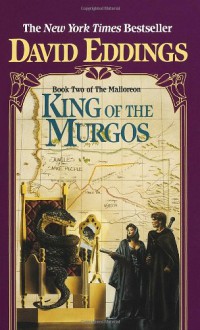
Okay, I have probably got to the point now where I really do not know what to write about a book. It is strange because I managed to get through all of Piers Anthony's books without coming to a stumbling block, but with these series I have finally run out of steam. People seem to like this book, and if they do then more power to them. I must admit that when I read this book I did enjoy it but when I look back on it now I sort of wonder how it was that I even bothered with it. I guess it is because I never really understood the nature of literature and did not read to learn but simply read for the sake of reading, and in many cases simply read because I liked reading fantasy.
Fantasy is a very popular genre, but in many cases it is much more escapist than science-fiction. At least in a lot of the earlier science-fiction books, and in saying that I am looking back to the 50s and 60s and earlier, there was a lot of speculation, and science-fiction is also a vehicle to explore some strange concepts. Hey, even Star Trek would use science-fiction to explore some very complex ideas, such as whether the host of a symbiot is guilty of a crime committed by an earlier host (not that the answer would really have any effect in our world considering that symbiots don't exist), however I sometimes question whether fantasy can be used as a similar vehicle.
It can, in a sense, and C.S. Lewis demonstrated that in Narnia. Terry Pratchett, also to some extent, demonstrates that in his Discworld novels, though we need to remember that people like Pratchett, and Moorcock, seem to take fantasy in a slightly different direction. Moorcock was a relatively early fantasy writer, considering that fantasy had not been around all that long, but even then it is still considered to be an appendage of science-fiction. However, many seem to prefer the moniker of science-fantasy to differentiate it from the more harder, speculative science-fiction that authors like Asimov would write.
As for Eddings, well he has not necessarily done anything new, as have other authors such as [author:Robert Jordan], and here I am steering away from some of the what I called canned fiction: stories that are written to cash in on a popular product such as Dungeons and Dragons. These stories all seem to try to mimic, and in a way, exceed, Tolkien. Remember, Tolkien literally set the stage for the fantasy novel and the modern quest narrative, however he did it it a way that made it clear that there was no prophecy and that the weakness of the main characters meant that there was always a chance that they could fail. However they didn't fail, and in the modern story, they cannot fail. However, neither are they character studies (considering that Odysseus didn't fail either in that he actually managed to get home).
Failure, however, is not a no-no in literature, and in many earlier books we see the main character fail. Consider Macbeth, despite being what I call a Hollywood movie told from the viewpoint of the bad guy, the main character fails. The same happens in Othello, in King Lear, and in Troilus and Cressida. In these stories there is no happy ending, with the hero and heroine falling in love and living happily ever after. This is the modern story, the modern quest, where failure simply does not come into the picture.


 Log in with Facebook
Log in with Facebook 









